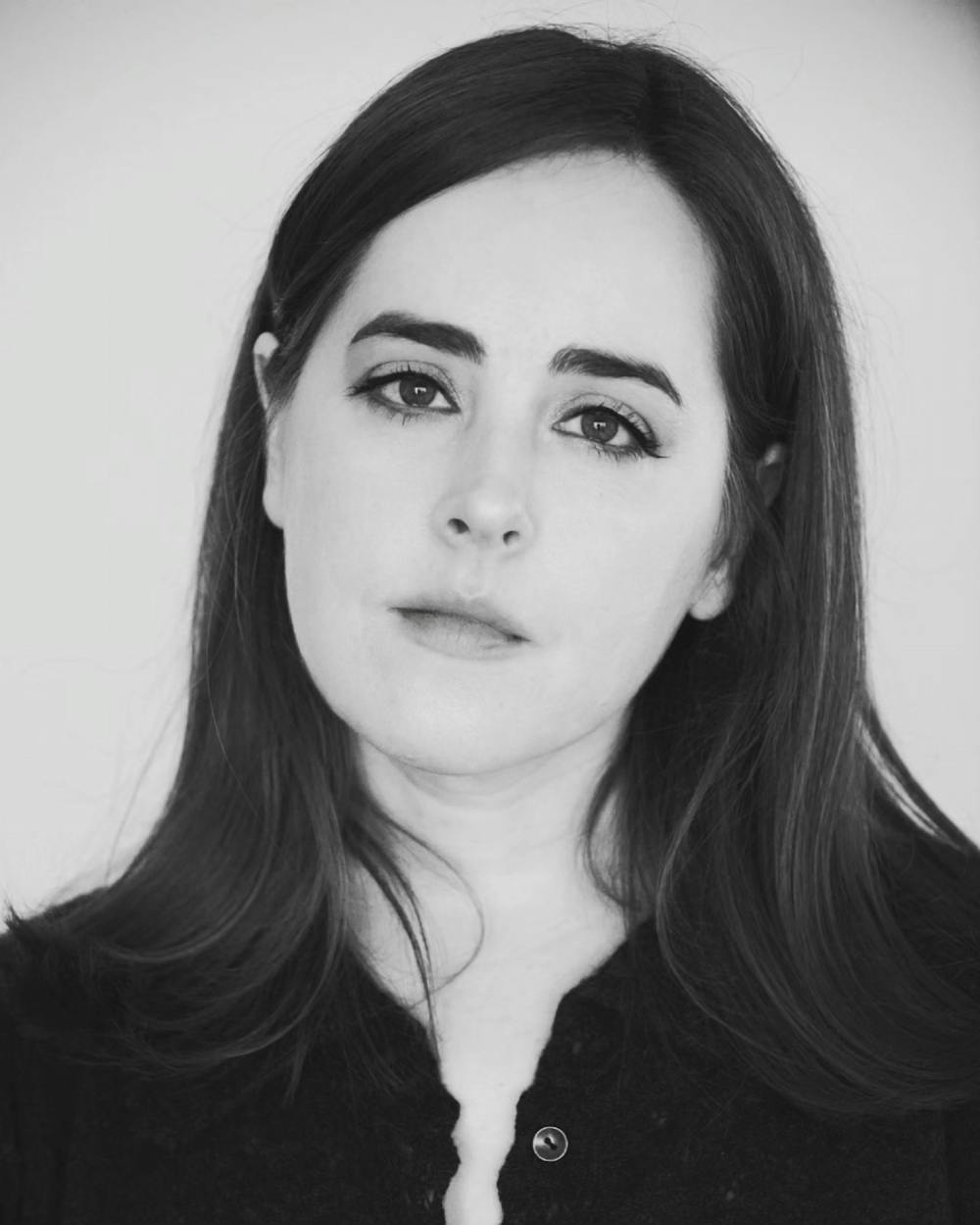The following is a conversation with Susan Elizabeth Shaw, an actress from the University of Southern California School of Dramatic Arts, who played in the 2023 blockbuster Oppenheimer, a film that brought discussions on ethics in scientific research to a mainstream audience. Shaw played Laurie Schwab Zabin, a PhD graduate and professor at the Johns Hopkins School of Hygiene and Public Health (now the Bloomberg School of Public Health). Zabin was a major figure in the fight for reproductive health, both in Baltimore and the rest of the world. From her volunteer work at Planned Parenthood to her founded organizations which increased accessibility and awareness for contraceptives, Zabin was dedicated to using her research for the greater good, making her presence in Oppenheimer more than fitting.
Shaw discussed her research into Zabin’s life as preparation for the role, as well as her experience working on the set of Oppenheimer.
The News-Letter: What went into your preparation for this role? How did your perception of Zabin affect how you played the character?
Susan Shaw: First, I watched etiquette videos that were made for women in the 1940s, specifically the later ‘40s. A lot of these videos were directions on how often one should wash their hair, or the correct way to set a dinner table. You know, these were the thoughts of the time. And by immersing myself in as much as I could about the world, I could then, as I learned about [Zabin] — and not just about her incredible education, but also her upbringing, her life choices — I started to learn about her own agency and how her beliefs informed all of her choices as she moved through life.
Comparatively, you know, to the times, when most women were told to behave and what the societal norm was — I found such a stark contrast in Zabin because no matter what was going on around her, she had such a sense of personal agency about what she deeply cared about and wanted to explore. That was her driving force, which is what brought her to where she was.
N-L: Could you tell us about the results of your research? What exactly was Zabin’s connection to the city of Baltimore and Hopkins? I understand she first moved here with her then fiancée, Lewis H. Strauss — son of the more well-known Lewis L. Strauss.
SS: Yes, she moved there with Strauss. Ironically, he was going to study physics. But after two years, she had an abrupt change of course: She had a baby in 1951, and she developed a relationship with her obstetrician, Alan Guttmacher. When she had her baby, Guttmacher asked her for help getting contraceptives to inner-city women in Baltimore, which was a growing problem at that time. So, she did. She started volunteering at Planned Parenthood. The more that she saw, the more she wanted to help.
[This] actually changed the course of her education. She went back to school at Hopkins. She ended up getting a PhD in Population Dynamics through the Bloomberg School of Public Health, which used to be called the School of Hygiene and Public Health. When she was accepted for her PhD, [Wiley] Henry Mosley, the person who accepted her, apparently told her she lacked not one but every single credential that they would normally expect, but because of her passion and the activism that she was already living, they accepted her. She spent three decades at Hopkins, becoming a professor, a faculty member.
N-L: As an academic researcher, what were some substantial actions that she took to address reproductive health awareness?
SS: What's so impressive about her was the combination of everything that she did. For example, she was deeply concerned about the rising teen pregnancy rate, so she started gathering data on adolescents and teenagers and when teenage girls would become pregnant. In one of her research studies, she found that teenage girls weren't getting access to contraceptives and going into clinics until a year after becoming sexually active; instead, they were getting pregnant in the first six months. It wasn't that there were no [resources] allowed [for] adolescent, teenage girls — they weren't getting the help they needed in time. She was trying to circumvent the entire teen pregnancy situation completely.
So, she founded clinics really close to high schools in the ‘80s, which was unheard of. She was a pioneer and [...] a true activist. The plan was they would have somebody work at the school and be able to communicate with the students about sex, education and contraceptives.
That same person would be the liaison, working at the clinic in order to provide direct access for the school. [Zabin] was also active all over the globe. She was deeply concerned with [girls’] access to reproductive care and education in India and China, so she made those trips globally with a fervor to help women all over the world.
N-L: Shortly after the release of Oppenheimer, there was discourse online about its lack of focus on the female historical figures of the time, some even going so far as to call the film misogynistic. How do you feel about the portrayal of women in Oppenheimer? Would you have liked to see more attention toward the intelligent and influential women involved?
SS: I would disagree with the takeaway that women weren't featured or were sidelined, because the story is from Julius Robert Oppenheimer's point of view. This is a type of memory play, so the way that Oppenheimer saw women — the way that Oppenheimer saw the world — is the point of view that Christopher Nolan delivered to the people.
You're looking at a deeply conflicted individual with so much brilliance and ambition and so much heart and so much true motivation to succeed, you know, for the right reasons — wanting to beat the Nazis, wanting to, in fact, arrive at a world peace that he truly believed atomic energy would deliver.
I say [Oppenheimer] is deeply flawed because he was a womanizer. He was unfaithful — had a wandering eye. These facts about him were also illuminated in the film. What you saw was his perception. So it's his perception of [Zabin]. It's his perception of Lewis L. Strauss, all of which was designated by the color frames in the film.
N-L: I must ask: What was it like being on set with Christopher Nolan? Is he an easy director to work with, compared to your past experiences in film?
SS: It was the experience of a lifetime. The energy on his set is palpable. And, at the same time, it's clean. There is no stress. Everybody knows what they’re doing. You know, some sets you work on are behind, [and] some sets carry a sense of stress. Not on Nolan’s set. It's just like butter. He knows exactly what he wants.
Nolan himself is so focused and calm. It really feels like an open creative space. And that was one of my favorite things about working on it. I worked very closely with Robert Downey Jr., because I play his daugher-in-law in the film. He is the kindest man I've ever met in my life.
He [Robert Downey Jr.] was so generous. I had never worked on a film with this big of a budget. This was my dream director. I told him, “Tell me if I'm doing something wrong,” and he helped me through the process. We had the creative freedom to work it out together.
Nolan allowed that. He gave us free rein. He was like a lighthouse. He was like a father figure. He was incredible. He was so kind to me and so helpful to me. And he was like, “You're doing amazing.” He's so supportive of everyone around him. And I just, I wanted to cry. I felt so supported. I had no idea I was going to have a working relationship with someone who's so well-known, who was so humble and such a good person, honestly.
N-L: What can you say about Zabin’s legacy, at Hopkins and for reproductive rights in general?
SS: I think that her legacy at Hopkins is so powerful because she made the connection between research and advocacy. She made the connection between education and policy, and then she took it to the people. She cared so deeply about helping people all over the world that it became her life's work. The depth and breadth of her education that she received at Hopkins fueled her.
She was then able to take her findings and found clinics and educational institutions to carry on the work, like the Bill and Melinda Gates Institute for Population and Reproductive Health, for one. She was a founding member of that institution. So she worked tirelessly to get real results for the [women] in the clinic. And those three decades that she spent at Hopkins are what gave her the power to exact real change in the world. And that's a life legacy. She had her antennas out to the world, and I think that that's rare.





